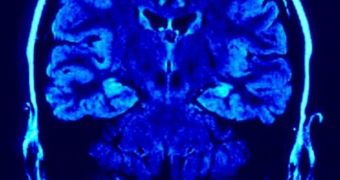Loosing the proverbial keys may in the new future become a thing of the past, researchers say, if the efforts of a research team succeed. The experts are working on reducing the incidence of memory problems, analysts reveal.
The new work could also address other common issues related to this aspect, such as for example getting lost. In the future, people could become better capable of keeping track of themselves.
Johns Hopkins University (JHU) cognitive psychologist Amy Shelton is a part of a group conducting such research. She says that tracking ourselves and our things could soon become easier than ever.
“What we're trying to study is when you get around in the world and in your day-to-day environments, how is it that you learn them,” explains the researcher.
She and her team are supported in their investigation by grant money obtained from the US National Science Foundation (NSF). The navigation system of the brain is the main target of the study.
Recently, Science Nation caught up with Shelton at the Kennedy Krieger Institute, where she demonstrated some of her discoveries on research associates Scott Clark.
In this lab, experiment participants need to spend some time learning the ins and outs of a virtual world, which they navigate on a computer screen, and then submit to having their cerebral blood flow patterns analyzed.
They have to rest still inside a functional Magnetic Resonance Imaging (fMRI) machine, which is capable of determining which of the brain areas are involved in various lines of thought.
Using Clark as a test subject, Shelton revealed some of her work. “He's watching a movie of an observer moving around and, as the observer moves around, you see these items pop up,” she explains.
“There's a shopping cart, and a palm tree […] and the job is to learn where in the environment those items are located,” Shelton reveals.
What researchers are trying to determine is whether the participant is a place learner (as in he creates a map of the virtual world in his head) or a response learner, who always takes the same route.
“What we look for is: are they taking the shortcuts or are they sticking to their familiar path. And this tends to be very diagnostic,” Shelton goes on to say.
“The hippocampus is more active or sort of pops up for people who are showing place learning on that test: who are taking detours or who are using space more flexibly. Whereas the caudate, is more active for people who are creatures of habit: using the familiar routes over and over again,” she adds.
The new data could conceivably be placed to very good use, she and other scientist believe.
“By understanding the different kinds of learning mechanisms and, in particular, what kinds of advantages and disadvantages each type of learning conveys, we can start to tailor people's GPS systems to play to their advantages,” the expert concludes.

 14 DAY TRIAL //
14 DAY TRIAL //